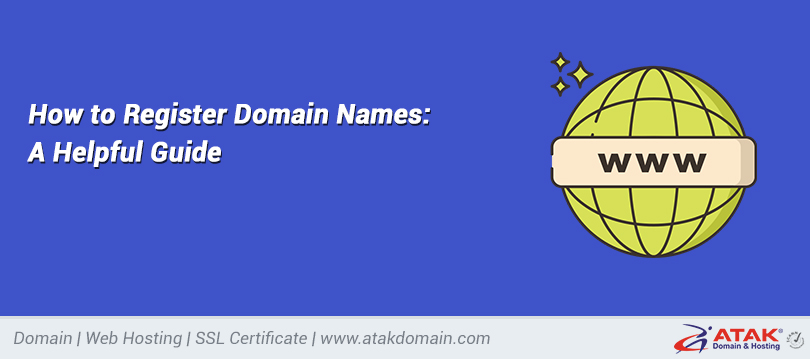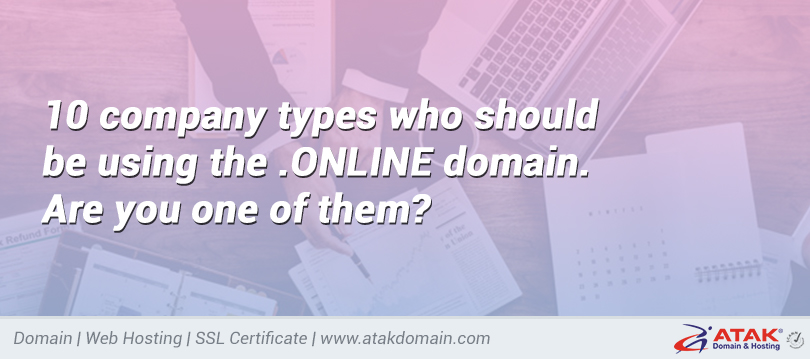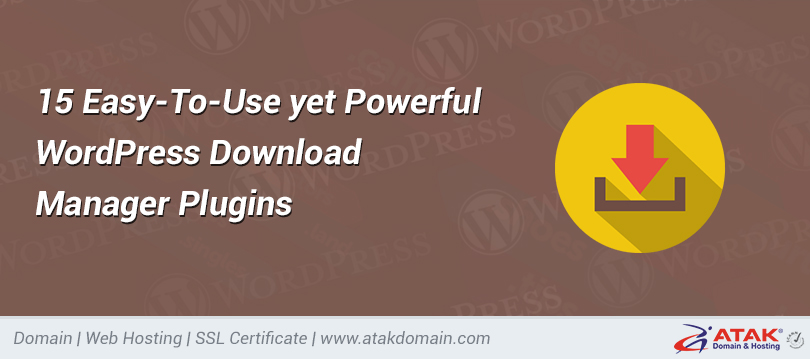
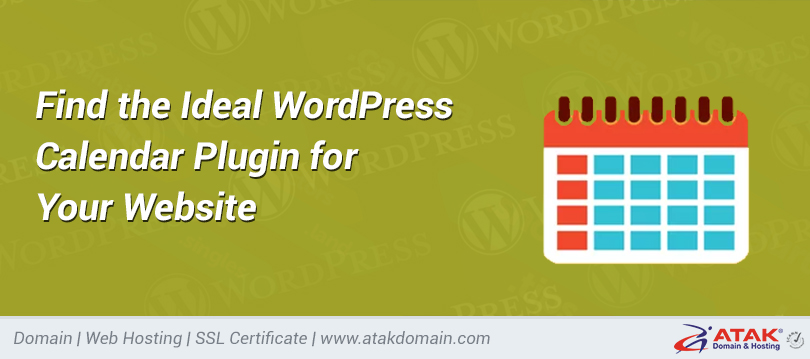
Find the Ideal WordPress Calendar Plugin for Your Website
Calendars get used every day in marketing firms, doctor’s offices, web design companies, and your local McDonald’s. Some calendars are still made of paper, but it’s becoming far more common to share these calendars online. To do so, a WordPress calendar plugin is typically required. Luckily, WordPress has many of these plugins to choose from. That’s why we love it!
Not all WordPress calendar tools are made equally, and many of them have functionality that you may or may not use.
As an example, a doctor or lawyer wants to have an appointment calendar that updates in real-time, with options for patients and clients to see what times are available and make bookings.
On the other hand, a local baseball team might only need a solution that syncs with a Google Calendar, where the dates and times aren’t interactive and it offers more of a read-only situation.
Since calendars are so important for staying productive and getting to meetings and appointments on time, we want to figure out the best WordPress calendar plugin for your individual needs.
Therefore, some of the options below are simple and easy to implement, while others work as more advanced reservation systems.
Maybe All You Need is to Embed a Google Calendar
Both free and commonly used, Google Calendar is the gold standard of online scheduling tools. In fact, many of the WordPress calendar plugins below offer support for Google Calendar.
But what if you don’t want all the fancy features of a calendar or booking plugin? If you’d simply like to display an exact replica of your Google Calendar and have it sync with your personal or business account, here’s how to do it.
Step 1: Open Your Google Calendar
Locate the calendar you would like to display on your website. All of your calendars are located on the left side of the screen. Select the three dot icon to reveal a list of options. Click on the one called Settings and Sharing.
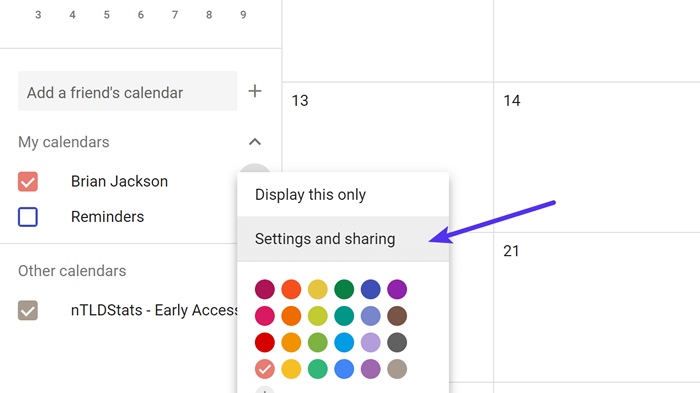
Google calendar settings and sharing
Step 2: Make Sure the Calendar is Public
A private calendar won’t show up to anyone on your website. Therefore, scroll to the Access Permissions section to ensure that the “Make Available to Public” box is checked off.

Make Google calendar public
You can also change what the public can see:
- See only free/busy (hide details)
- See all event details
Step 3: Get the Embed Code
On the same Settings page, scroll further down to the Integrate Calender section. You’ll see an Embed Code, which you can copy. There are also tools for customizing the code prior to copying.

Google calendar embed
Step 4: Embed and Display the Google Calendar
With the embed code copied, open your WordPress dashboard. Go to Posts > Add New (or a widget or page–wherever you’d like to display the calendar). Open the Text editor (not Visual) then paste in that embed code. After Previewing or publishing you should see an almost exact replica of your Google Calendar on the frontend of your site.
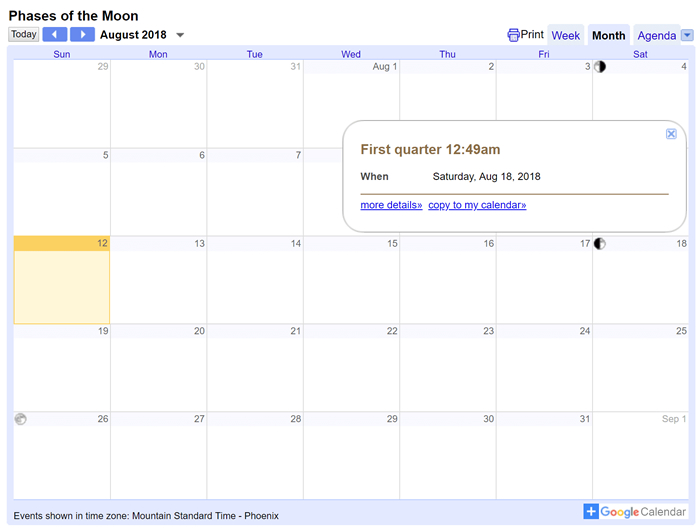
Google calendar embed on WordPress site
Finding the Ideal WordPress Calendar Plugin in 2021
If you’d like more advanced design tools, along with options for bookings, reservations, and recurring events, a plugin is your best bet. Below is a shortlist of our favorite WordPress calendar plugins. Use this for a quick glance at each suggestion.
- The Events Calendar
- All-in-One Event Calendar
- WP Event Manager
- Calendarize it! for WordPress
- My Calendar
- Booking Calendar
- Events Manager
- WP Simple Booking Calendar
- Simple Calendar – Google Calendar Plugin
- EventOn
- Modern Events Calendar
Below is a list of the plugins with recommendations, comparisons, and features from each one. This way, you’ll have a much easier time choosing the right calendar plugin, and you won’t have to test out each one yourself.
1. The Events Calendar
The Events Calendar plugin comes with plenty of impressive features in the free version, alongside an option to upgrade for $89 on one site. The Pro Events Calendar plugin includes options for recurring events and a variety of map views (like with maps, photos, and venues). The paid version also provides custom event attributes and a location-based search, which might come in handy for a company with multiple locations.
Keep in mind that the average blog or small business should be able to run a successful calendar with the free version, but that $89 starting price isn’t bad either. In addition, you can opt for add-ons if you’re in need of functionality for event tickets, community events, or something like a filter bar.

The Events Calendar WordPress plugin
The free version is a popular one as well, with a simple interface for creating events and saving things like venues and organizers. Multiple views are available, and there is a basic event search paired with Google Maps. The great news about The Event Calendar plugin is that it’s updated frequently and you can find fast support in the forum area. The current and past contributors are listed on the plugin page as well. It’s clear they have a solid team behind the plugin’s development.
Reasons To Consider This WordPress Calendar Plugin
- The free plugin provides the basic tools needed for most websites. I can’t imagine jumping to the premium version unless you’re looking for something more advanced like Eventbrite integration or recurring events.
- The plugin provides a widget for listing all of your upcoming events.
- The plugin integrates with Google Calendar and iCal for syncing with your business or personal accounts. However, if you want to import events from Google Calendar to The Events Calendar you will need their premium Event Aggregator add-on.
- The frontend interface is super smooth because of AJAX development. I haven’t noticed any glitching or strange jumping when browsing around the test calendars.
- The Events Calendar plugin has an integration for Eventbrite, where you can easily sell your event tickets through the popular platform and link it up to your own calendar.
- It’s been internationalized and translated so that pretty much everyone can use it around the world.
2. All-in-One Event Calendar
All-in-One Event Calendar is a desirable WordPress calendar plugin because of its sleek design, along with its completely free base system. Several add-ons are available for adding extra features, but that means you only need to pick what you need.
Some of the add-ons you might end up paying for include:
- Frontend submissions
- Tickets
- CSV import
- Venues
- Twitter integration
- Extended views
- Prioritized support
The add-ons range in price, but you won’t have to pay more than around $59 per year for one, or $99 per year for a bundle of the add-ons.

All-in-One Event Calendar WordPress plugin
The main feature we like so much about the All-in-One Event Calendar is the import/export tool. It combines nicely with most popular calendar systems, so if you’d like to integrate with iCal or Google Calendar you shouldn’t have any problems. It’s also nice to see that some typically premium features are offered in the free version. For instance, you can set up recurring events without having to pay a dime. There’s also a beautiful filtering system for users to sift through categories or tags.
Reasons To Consider This WordPress Calendar Plugin
- The free version combined with the premium add-ons keeps costs low for most users.
- It allows you to embed Google Maps with the free version.
- You also get recurring events for free, which is often not the case with the competition in this article.
- Share your calendars to places like Google Calendar–or pull information into your website calendar from Google Calendar.
- The plugin comes with an inline calendar editor for making color and styling changes.
- This plugin is also translated into a wide variety of languages.
3. WP Event Manager
WP Event Manager is one of the simpler, lightweight WordPress event management plugins. It’s very popular with great reviews and even better customer support. We’ve even noticed that users rave about the developer support for the free version of the plugin.
They have a premium calendar add-on for $39 which allows you to display an event calendar that lists the future events on your website. It is indeed a very fast and easy way to show all your events created on the dates.

WP Event Manager WordPress plugin
Reasons To Consider This WordPress Calendar Plugin
- Has the ability to show upcoming events, single date events, and a widget calendar.
- The events calendar layout is awesome.
- The calendar features a hover/mouse event that shows a small popup with event details. The visitor can then click a link to learn more about the event.
- Calendar widget has been optimized to look great in the WordPress sidebar.
4. Calendarize it! for WordPress
Although Calendarize it! for WordPress doesn’t have a free version, the $25 price tag isn’t anything to get worked up about, and the plugin is packed with some flexible tools for displaying a calendar on your site. An interesting advantage to this WordPress calendar plugin is its compatibility with WPBakery Page Builder (formerly Visual Composer). This combination eases the pain of designing your calendar, since it’s all done with the handy drag and drop editor. You don’t need the Page Builder, but it certainly makes the design process nicer.

Calendarize it! for WordPress plugin
That said, you can also add several free add-ons to power up your online calendar and offer features for event countdowns, upcoming events, and community events. There are even a few premium add-ons like for payment and advertising options. However, I can see two particular premium add-ons being taken advantage of the most: the event tickets for WooCommerce add-on and the one for Eventbrite tickets.
Reasons To Consider This WordPress Calendar Plugin
- Use the Calendarize it! plugin with the WPBakery Page Builder plugin for the ultimate drag and drop experience.
- The costs remain pretty low with Calendarize it!, since you only pay $25 for the full plugin, and then most add-ons are free.
- You have options for adding your calendar to WooCommerce or integrating with Eventbrite.
- Create custom buttons in all of your event listings.
- You can add a counter to create urgency for all of your events.
- The entire calendar is highly customizable, with featured images, color options, a taxonomy filter, and even a fun advent calendar mode.
5. My Calendar
If you’re looking for a free plugin that allows for multiple calendars on one site or support for WordPress multisite, My Calendar should do the trick. It has the ability to display several calendars on one website, where the calendars can be displayed by categories, authors, locations or simply by showing a list of upcoming events.
The plugin has both grid and list views, along with monthly, weekly, and daily views. You get a few mini-calendars (in the form of widgets and shortcodes) for when you need to squeeze a calendar into your sidebar. Overall, the features in the free version are pretty standard, with the biggest outlier being the multisite support.

My Calendar WordPress plugin
If you opt for My Calendar Pro, you can pay either $49 for a single year license or $149 for a lifetime license. Both look reasonable for the extra functionality. For instance, you can activate publicly submitted events where your users create and submit their own events to the calendar. Along with a large selection of other premium features, the My Calendar Pro version has support for online payments, offline payments, ticket sales, and more.
Reasons To Consider This WordPress Calendar Plugin
- The free version of My Calendar provides support for WordPress multisite and for those who want to place several different calendars on their websites (based on certain categories and other metrics).
- The premium plugin has a lifetime membership that works nicely for agencies and web designers since it’s affordable.
- You receive several options for making money through the calendars. You can sell tickets, collect online payments for event submissions, and collect offline payments.
- Make member discounts for some of your users who either want to buy tickets to events or submit events to the calendar.
- The backend interface is straightforward, while the frontend calendar looks clean enough for most sites. It’s also nice that it comes with widgets and shortcodes for smaller calendars.
6. Booking Calendar
Some of the WordPress calendar plugins we’ve already talked about have support for payment and tickets, but they usually come in the form of add-ons or premium features. The Booking Calendar, on the other hand, is made specifically for showing calendars in which users can interact and make bookings. For instance, a mechanic, lawyer, hair stylist, or doctor could benefit from a calendar that manages appointments.
The plugin has an intuitive interface and flexible features, with options for your users to check the availability of services or property (like hotel rooms). They can then make a booking right from the calendar.

Booking Calendar WordPress plugin
Notification emails are sent to both the admin and the person trying to make the booking.
It’s incredible how many features are packed into this WordPress calendar plugin, as can be seen on its official plugin website. The pricing structure is absolutely absurd, but at least it gives you some flexibility. Not to mention, you only have to pay around $60 for a personal license on one site.
The multisite editions are the most expensive, so make sure you actually need all of those booking features, since the My Calendar multisite functionality is completely free.
Reasons To Consider This WordPress Calendar Plugin
- The free version offers a friendly booking interface with a responsive front and backend.
- The free version also has some great built- features like automated email notifications, widgets, a search bar, and the ability for users to see past bookings.
- You can import Google Calendar events and other events from certain files.
- The more advanced versions of the plugin provide some of the most powerful features for booking and calendar plugins in this entire article. It becomes more of a suite so you’ll be spending money but you can edit most elements and brand it perfectly for your business.
- One of the premium plugins has support for several online payment gateways, so the ability to collect money is there.
- Booking Calendar does have a pricing level for multiple users and multisite support.
7. Events Manager
Events Manager is a highly regarded WordPress calendar plugin with event registration tools, and a full set of other flexible features. The main features include single and multi-day event registration options, along with recurring events. The bookings management lets you approve and reject certain submissions, and the multisite support allows you to share the calendar throughout your entire network. In addition to that, the Events Manager plugin has BuddyPress support for making a social network out of your events (kind of like Meetup).

Events Manager WordPress plugin
The Pro add-on starts at $75 for one site and goes up to $150 for five sites. This gets you one year of support and updates, but the plugin technically never has to be paid for again. The premium payments also give you access to all premium add-ons and the pro support forums.
As for the overall value of the Events Manager plugin, it’s hard to argue against the free multisite and recurring events. The only things you might need from the premium version are payment gateways, custom booking forms, and coupon codes.
Reasons To Consider This WordPress Calendar Plugin
- Most of the time you have to pay for recurring events, but not with Events Manager.
- The free version of Events Manager also allows for multisite functionality. The Booking Calendar plugin (the plugin covered above) charges quite a bit of money for this.
- You still have the option to collect payments and create coupon codes if you’d like to pay for the premium plugin.
- The BuddyPress support is unique to the Events Calendar plugin, where you can generate a community of people around your events calendar. For instance, a church, school, or sports team could benefit from the profiles and messaging tools of BuddyPress, while also having a booking module and calendar.
8. WP Simple Booking Calendar
WP Simple Booking Calendar shows customers your availability throughout multiple months. It’s a unique design since the customer doesn’t have to scroll through the months or click on specific days to see what’s available. I really like this one for any company or individual who needs to organize and accept appointments online, since it’s one of the better interfaces for the customer.
The premium version only costs $29, and there’s no subscription or yearly support fee you have to pay for. That’s by far the best deal for a premium WordPress calendar plugin. The premium system is where you’ll see the features to show multiple months, and you can also create as many calendars as you need. You can also customize the legend and hide/show the booking history depending on your customer needs.

WP Simple Booking Calendar plugin
The free version is a little watered down, but the interface is smooth and it’s great for those who want a simple booking module. Then, you can sign up for the premium module since it’s so affordable.
As for the free plugin, here’s what you can expect:
- The creation of one booking calendar.
- A language translation file.
- A feature for showing your availability.
- A wonderful user interface.
Reasons To Consider This WordPress Calendar Plugin
- The premium version is inexpensive and very powerful.
- It’s one of the best user interfaces for when you’d like a calendar that shows your availability and booking options.
- The premium version allows for the showing of multiple months on the calendar, along with the creation of several calendars.
- The backend is easy enough to understand, but the real sleekness can be seen on the frontend. It’s insanely simple for customers to see availabilities and move around.
9. Simple Calendar – Google Calendar Plugin
We’ve made it a point to outline whether or not each WordPress calendar plugin integrates with Google Calendar or iCal, and that has to do with the popularity of each calendar. The Simple Calendar – Google Calendar Plugin is actually made to work with Google Calendar, so you might find it a little more suitable for your needs if you’re a Google Calendar power user.

Simple Calendar – Google Calendar WordPress plugin
Although some user reviews state that the customer support is subpar, you should still have a decent time with the plugin’s user interface. It looks modern, and the backend has enough tools for customizing it for your own brand. Simple Calendar is free when you download it from the WordPress plugin library, but you have the option to buy add-on bundles.
It appears that you can’t buy any of the add-ons individually, but the add-on bundles start at $49. This gets you every add-on made by the developers in the past year, along with something called a Google Calendar Pro plugin, which displays both public and private Google Calendars and displays information for events, attendees, and RSVP status.
Reasons To Consider This WordPress Calendar Plugin
- It’s great if you’re a Google Calendar power user and would like to take advantage of event bookings through your own personal or business account.
- The plugin has a feature for transferring over the color-coded events from Google Calendar. This is not available in many of the other WordPress calendar plugins.
- It has support for both public and private Google Calenders.
- There’s absolutely no need to create or manage events in WordPress. In fact, you could have one person running your website and another person handling the calendar, and nothing would go wrong.
10. EventOn
EventOn is a premium-only calendar WordPress plugin. You can buy it on CodeCanyon for $24, but we recommend going to the plugin’s website before that to try out some of the demos and see if it’s what you need. The plugin is affordable for a premium solution, but blogs and smaller businesses with budgets might not like the whole set up. Although it’s not that big of a deal for some brands, you might be irked to find that even after the premium payment you might have to pay for add-ons.

EventOn WordPress plugin
That said, some of these add-ons are powerful, with options for RSVPs, event photos, and dynamic pricing. I also like the one add-on that lets you monetize user submissions to the calendar.
Add-ons range in price, but you should expect to pay around $25 to $55. The library is large, so here are some other add-ons you might be interested in:
- Event countdown
- Event reviewer
- A daily view to only show one day at a time
- Speakers and event schedules
- An events map
- A full calendar view
- Syncing for social media accounts
- Many more
Without the add-ons, you still gain access to a beautiful, minimal calendar design, with a sleek tile layout, event images, multi-day events, and maps. It’s truly one of the most powerful WordPress calendar plugins you can find, and it helps that you can also include an event booking area. EventOn won’t seem attractive to new website owners with limited budgets, but it’s a full suite for those who need a calendar with flexibility and power.
Reasons To Consider This WordPress Calendar Plugin
- It’s a full suite of calendar tools and add-ons. You get to choose from dozens of add-ons, while still getting one of the more impressive calendar plugins on its own.
- EventOn provides the most modern layout I’ve seen so far. It offers tile and list views, both of which support beautiful images and animations.
- Although there’s no free version, the plugin doesn’t actually cost much ($25) and you most likely only need one or two of the add-ons (if any).
- Each event detail page consolidates all of the information quite well–with pictures, maps, social buttons, details, and hours, all packed into a beautiful popup.
11. Modern Events Calendar
The Modern Events Calendar plugin has both a free lite version and a premium version which costs $29. Its powerful and easy to use events management system provides a full online calendar and a place for you to book appointments and events.
The shortcode generator is a favorite of ours, since you can place your booking calendar anywhere on your website. Not only that, but there’s a recurring events tool for those occasions that happen every month, week, or year.

Modern Events Calendar WordPress plugin
This plugin is known for its solid support forum, where you can typically get responses to your questions at any time of the day. You’ll also notice that several skins come with the plugin. So, if you want to create a yearly view of your calendar or an agenda for your organization, the Modern Events Calendar plugin has skins for those. Overall, this WordPress calendar plugin has an extremely modern design, advanced features, and quality support. The ratings show that past customers are satisfied, so it’s not a bad choice for all experience levels.
Reasons To Consider This WordPress Calendar Plugin
- You get a powerful booking system with your WordPress calendar plugin.
- Recurring events are available as a main feature.
- The modern design is highly customizable, yet it always seems to look professional and clean.
- It integrates with Google Calendar for a real-time syncing experience. The iCal calendar can be imported into the plugin.
- Modern Events Calendar is ready for WordPress multisite.
- It’s also compatible with the WPBakery Page Builder, which delivers a drag and drop interface that makes it easier for all skill levels to design calendars.
Additional Calendar Plugins
While all of the above plugins have quite a bit of development history behind them, here are a few additional plugins you might want to check out:
- Simply Schedule Appointments
The Perfect WordPress Calendar Plugin for You
If you only need a simple calendar plugin to display events, most of the free solutions should work for you. We also recommend every one of the booking calendars as viable plugins. However, we’ve also broken it down into the best of the best WordPress calendar plugins, depending on your own situation:
- The best WordPress calendar for beginners – Calendarize it! or WP Event Manager
- The best value – All-in-One Event Calendar
- The calendar with the most features – The Events Calendar
- The best booking calendar – WP Simple Booking Calendar
- The best multisite calender – My Calendar
- The most beautiful WordPress calendar plugin – EventOn
For even more booking plugins please see our other post dedicated to the topic: Best WordPress Booking Plugins to Fully Automate Your Business.
And that’s just about everything you need to know about WordPress calendar plugins! If you have any questions or would like to talk about your experiences with some of these plugins, share a comment in the section below.
Save time, costs and maximize site performance with:
- Instant help from WordPress hosting experts, 24/7.
- Cloudflare Enterprise integration.
- Global audience reach with 29 data centers worldwide.
- Optimization with our built-in Application Performance Monitoring
Categories
- Domain Guide & Registration Process
- Email Services & Setup Instructions
- Step-by-Step How-To Guides
- Insights & Articles from the Tech World
- Server Management & Performance Tips
- Software Development & Coding Resources
- SSL Certificate Guide for Secure Websites
- Choosing the Best Hosting & Optimization Tips
- Key IT Terms & Their Definitions
- SQL Database Management & Queries
- WordPress Setup & Optimization Strategies
